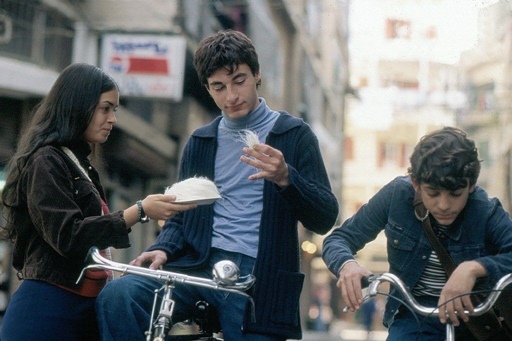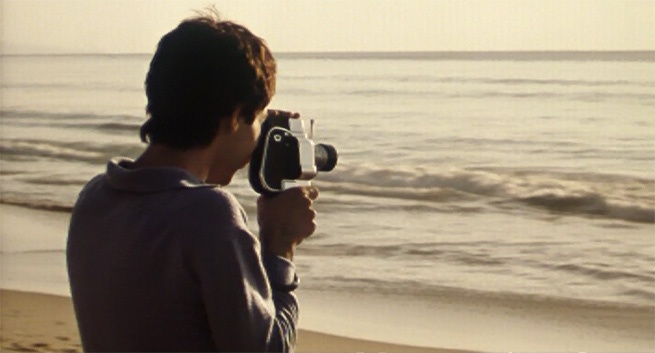'West Beirut' Reignited My Love for War Comedies
There is perhaps nothing more frightening in this world than to know that your country is getting into war. They have been taking place for thousands of years, and even though the methods and tactics have changed, the fear will always be there. For those of us who are lucky enough not experiencing the fatalities of war, there are people who chose to write literature and make films and TV shows on war. You will find plenty of these, but I am certain you will find much less if you are looking for adaptations that transpire comedy in such dark times.
Few filmmakers have explored the territory of war comedies, and the reason for that is very clear—it is super difficult to make a successful film that tackles the times of war in a genuinely hilarious way. Comedy and war film are two genres that hardly mix together, but if done right, war comedies can very subversive. Considering all the death and horror involved in a war, some of the films in the genre have mastered comedic methods such as satire and absurdism. I have been watching films religiously since I was 15 years old, and I can confidently say that I have seen very few war comedies that gave me a rollercoaster of emotions. The last time I felt good watching a war comedy was years ago until West Beirut came on my radar.
Directed by Ziad Doueiri, West Beirut is a chronicle of Doueiri’s family’s life during the Civil War in Lebanon in the 1970s. At that time, Beirut was partitioned along a line separating the Muslim-Christian-Jewish-mixed West Beirut from the quasi-Christian East Beirut. Tarek (Rami Doueiri) is a high school kid and a self-acclaimed rascal who loves causing mischief to others alongside his friend Omar.
Tensions start to rise when his mom feels the urge to leave Lebanon once and for all, but his dad refuses, as he is trying to convince his family that things will soon settle, as is always the case in Lebanon from his view. Tarek gets acquainted with a Christian girl in his building, May, who causes problems to Omar and whom he feels at discomfort with. The film goes on to portray the mishaps and domestic terrors of this war inside the country, while we see Tarek and Omar having the most laughable and absurd of interactions while going on mini-adventures day by day. The theme of tragedy is always there, but the Doueiri Brothers wanted to have a different perspective from Omar’s Super 8 camera lens.

The film is insanely chaotic at most times, with loads of cussing and filthy-mouthed characters, but it never breaks away from being genuine and heartfelt. While Tarek is happy to torment teachers at his French high school and spout a few fashionable slogans now and then, he's more preoccupied with pop music, sex, smoking, and his beloved cine camera, and barely understands why his mom wants to leave the city against dad's wishes.
Doueiri manages to accurately portray meticulous details that could only be described by someone who lived the mood of civil war in west Beirut. Life was as he witnessed it; surviving through the warmth of the people, regardless of the militias roaming the streets with their artilleries. This feels very familiar to another favorite film of mine, Life Is Beautiful (La vita è bella) that delves into a slapstick comedy of a Jewish family in Nazi Italy that Doueiri took inspiration from.
In comparison, we are shown the tenderness of Hassan the baker, who is trying hard to distribute bread fairly now that he has limited quantities of flour (which sounds horrifyingly familiar to the current situation in Lebanon since 2020). The film doesn’t want to showcase any political statement, but rather relies on the stories of these everyday people.
This brings us to one of the film’s standpoints: dialogue. The film is famous for its realistic conversations when compared to a period where Lebanese films showed nothing but a polished version of reality. He smartly introduced the Lebanese slang to an international audience, including the war vocabulary that became part of every kid growing up in the civil war.
The dialogue is, of course, what really stood out to me in this film. My dad, who worked in Lebanon for some time during the late 90s, mentioned that the film has realistic conversations and doesn’t match with the old and new films that depict the same events with softer and polished discourse. This same slang is still prevalent in my home country, Egypt, and other Arab countries today.

At its core, Doueiri took us back to a war that never left the memory of its citizens. For the non-Lebanese, it is a wonderful journey into the heart of a beautiful city from a completely fresh perspective that’s worth the repeated view. Hats off!
Post a comment